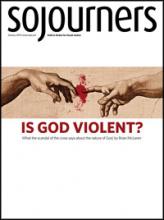Rev. Kobia: The international community, including churches, has a very important role to play to make sure that the 2005 Comprehensive Peace Agreement between North and South Sudan -- including the Jan. 9, 2011, Southern independence referendum -- is implemented in full. It is important for international churches to accompany Sudan’s churches to help with civic and voter education, and to help the churches be able to monitor the elections.
There is no question that the results of the referendum will be disputed: The North will not accept the South as separate, the South will not accept any result that does not give them separation. Currently, there are no clear mechanisms on how to resolve that; we are putting this to international actors.
We also have no less than half a million internally displaced persons, Southerners living near Khartoum. These people could easily be rounded up -- and even massacred. They also are being intimidated; they might not be able to exercise their right to vote.
Finally, we are seeing hot spots: Abyei, Southern Kordofan, the Nuba Mountains, and Blue Nile. Even if the North and the South separate peacefully with the referendum, these hot spots could be the sparks causing violence to start again.
When we contemplate what is likely to happen if the referendum does not take place on Jan. 9, we tremble. Because should there be another war, it will be more bloody and widespread than even the previous two; the Southern Sudan People's Liberation Army is better prepared. We pray this does not happen.
Read the Full Article
